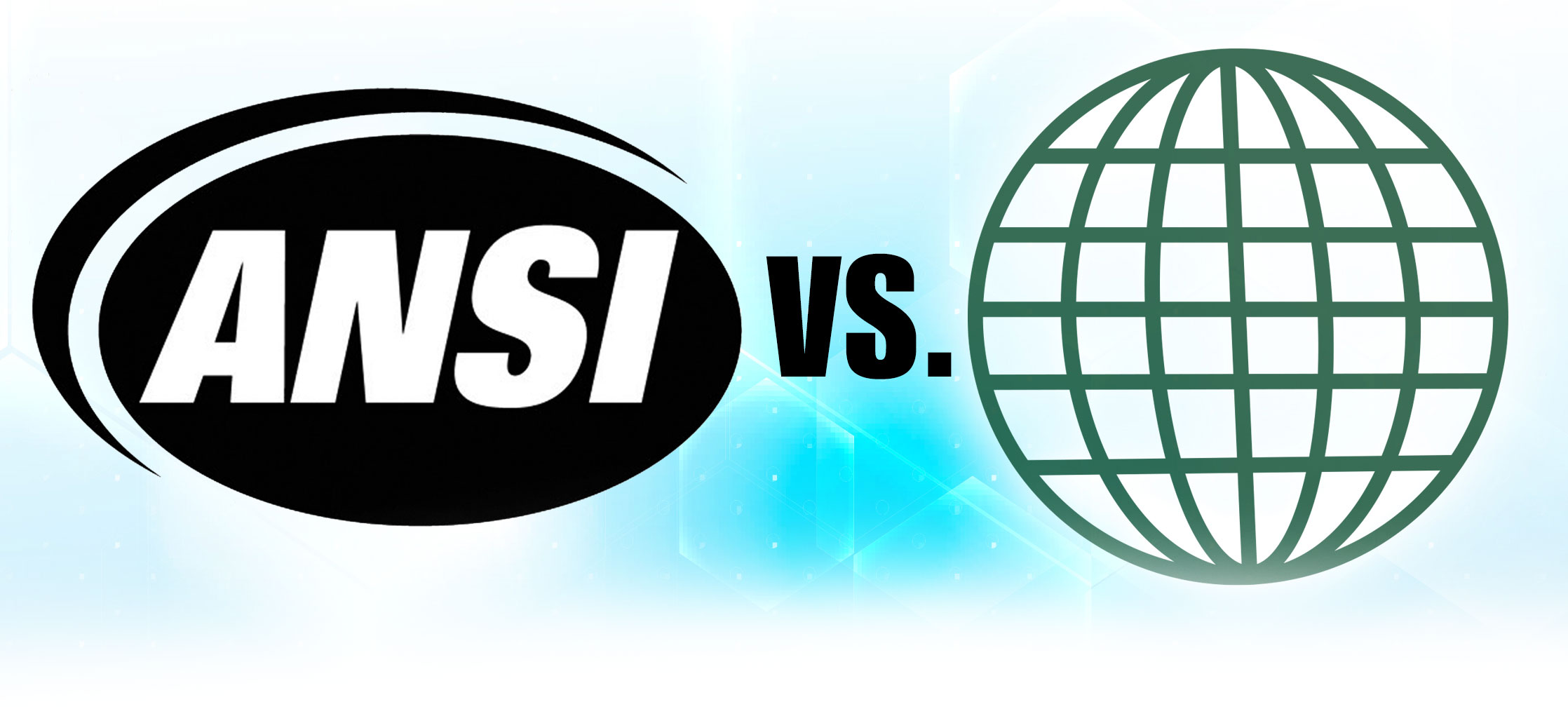
Definition: 2.1.1 Governmental: A Governmental Member shall be a governmental unit, department or agency engaged in the administration, formulation, implementation or enforcement of laws, ordinances, rules or regulations relating to the public health, safety and welfare. Each Governmental Member shall designate its Primary Representative who will receive benefits of membership in the Council on behalf of the Governmental Member as determined by the Board of Directors from time to time. – (Bylaws for the International Code Council, Inc. (iccsafe.org))
“Provision: The International Code Council develops construction and public safety codes through a governmental consensus process. The governmental consensus process leaves the final determination of code provisions in the hands of public safety officials who, with no vested financial interest, can legitimately represent the public interest. This system of code development has provided the highest level of safety in the world for more than 90 years.” (Code Development Process – ICC (iccsafe.org))
When we saw the lines above on the ICC website, as a licensed professional engineers, we got a little “fired up”. The ICC only allows government representatives who are also ICC members to have a final say in code development.
That’s quite a conflict. Rules and regulations are there to protect the public good. We have a duty to serve the public good. As engineers, we are expected–demanded even–to apply our knowledge in the making of sound judgments as it relates to code development. We are expected to fairly evaluate the proposal placed before us. We are expected to be fair in our judgment of said proposals without regard to outside solicitation or inducement.
Stakeholders, Governmental Members, and Vested Financial Interest
“Governmental members” may desire a public perception of having “no vested financial interest in” the development process. But there is no requirement or mandate for them to be transparent in avoiding conflicts of interest. Registered professional engineers, on the other hand, must recuse ourselves from decisions when we have a conflict of interest. Failing to do so can mean the loss of our license.
With our educational background, demonstrated and verified competency in our discipline, registered engineers have long proven that we are an important part of the code development process. After all, expertise should be the most important factor in developing a code.
Installers, inspectors, manufacturers are also important to the code development process. Each of these stakeholders provide a different and valuable and needed expertise to the process. But the question remains: How can everyday citizens make sure everyone in the process is acting on behalf of the public good and not hidden agendas?
The answer is the ANSI consensus process. ANSI is the American National Standards Institute. ANSI provides third party oversight, assuring that when individuals from different backgrounds within the design and construction community have a seat at the table, all the interests are focused on sound technical decisions that protect the health and safety of local citizens at the lowest possible upfront and long-term costs.
While many “governmental” stakeholders may not intentionally tilt the final decision, the best way to guard against the possibility is for all stakeholders to have equal input.
Furthermore, municipalities, and states should not be altering or modifying their local codes in a vacuum without working within an ANSI process. Unless those entities are willing to accept the liability for making such changes, as well-meaning as Review and Advisory Councils (RAC) may be in representing the construction industry, they represent only a small group of stake- holders, not the public at large. This sets up the potential for a conflict of interest situation.
Bottom line: every step of the code development and alteration process needs to be open, transparent and subject to consensus in process as well as in the composition of its deciding members.
No one nor any group, regardless of their well meaning, should have control and final say when it comes to the protection of the public health, safety, and welfare.
ICC is the ONLY model code developer that not only allows, but requires the final decision on code to be made by “Governmental” members, not a consensus process.
IECC “Going ANSI” = Inconsistency
ICC does follow an ANSI-like process when it comes to the International Energy Conservation Code (IECC). They made the switch last year when problems occurred in their governmental-member-only process.
Problem is, they didn’t switch the other codes to similar oversight: The International Plumbing Code (IPC) and International Mechanical Code (IMC) and the other 11 I-Codes” still remain under the governmental code process.
The ICC gave these reasons why an ANSI process is preferred over the governmental process for the IECC:
- “The topics included in the energy code require more technical discussion than currently allowed.”
- “Switching to a [ANSI] standard would prevent “manipulation” of vote”
- “Switching to the ANSI standard would allow for more consideration of cost effectiveness and quicker responses to new technologies…”
Couldn’t have said it better myself!
So now my question is – if that all applies to the energy code, why does it not apply to the technical aspects of plumbing and mechanical systems as well? Plumbing in our experience as professional engineers requires quite a bit of technical discussion.
And why wouldn’t ICC want a process that not only allows for more consideration of cost effectiveness, but also speeds up the response to new technologies? Heck, why don’t these arguments extend to mechanical codes, building codes, etc.? Why should any jurisdiction settle for a code that isn’t developed by an ANSI process? With concerns of water- borne pathogens and water quality increasing, while water resources have been diminishing, with viruses surviving in human waste, medical gas system capacities being taxed by global pandemics, and the digitalization and electronification of plumbing systems occurring, the plumbing industry is undergoing a very rapid rate of technical changes.
Even the American Institute of Architects (AIA) and others have pointed out this inconsistency and asked why all 13 I-Code books can’t be developed the same way as the IECC is now.
ANSI Code Process = Best Science and Best Interest for Public Good
It would appear that ICC remains committed to giving governmental members the final acceptance or rejection. This is not in the public’s best interest. The ANSI process requires the process to be open and transparent. It allows for more technical discussion. While ICC committees and working groups may try to be “balanced,” they are not required to be. And it’s a moot point since committees and working groups don’t have a vote and can be completely overridden.
The ICC has no incentive to change its practices without the demand of municipalities adopting their building codes.
This is why as plumbing engineers we think the Uniform Plumbing Code (UPC) is the best plumbing code. We say this acknowledging Christoph’s bias with that statement:
“I work for IAPMO, the organization that writes the model UPC code as well as the Uniform Mechanical Code (UMC). Here’s why my assessment is relevant: I joined IAPMO precisely because I always appreciated the prescriptive nature of the Uniform Codes that gave me clear steps to attain the safe, sustainable, and affordable outcomes. To paraphrase a famous ad from years back, I liked the codes so much, I joined the company.”
I, on the other hand, am not an IAPMO employee and here’s my point of view:
“The only bias I have is rooted in my professional ethical and moral obligations as an engineer. I, too, prefer codes to be developed under the ANSI process, like the Uniform Codes for plumbing and mechanical standards, because the ANSI process leads with the science to help communities build resiliency.”
The UPC is the only plumbing code that follows the ANSI process and uses consensus from a balanced technical committee made up of a wide variety of interest groups to make decisions. To recap why that matters:
- The ANSI process is the best type of process to develop standards and codes because it allows for the needed technical discussions.
- The ANSI process allows for quicker adoption of new technologies.
- The ANSI process is transparent and prevents manipulation of votes.
- The ANSI process is THE code development process that gives engineers like me – and other interest groups that care about public health and safety – not only a voice but a say in code development.
We took an oath to protect the public when we became engineers. IAPMO in the UPC does this. ICC in the IPC does not. And THAT difference is worth asking when adopting plumbing codes: Which codes really serves the public interest – An ANSI one based on consistency or a code based on a non-ANSI process that is inconsistent?

David Dexter
David is a registered professional engineer, certified plumbing inspector, and certified plans examiner with more than 40 years of experience in the installation and design of plumbing systems. He specializes in plumbing, fire protection and HVAC design, as well as forensics related to mechanical system failures. Dexter serves as chair of ASPE’s Main Design Standards Committee, chair of the Bylaws Committee, co-chair of the College of Fellows Selection Committee and co-chair of the Professional Engineer Working Group. He was also the 2008–2009 president of the Engineering Foundation of Ohio, 2010–2011 president of the Ohio Society of Professional Engineers, and 2012–2014 Central Region director for the National Society of Professional Engineers. He has held “master” contractor licenses in plumbing, HVAC, refrigeration and hydronics, and backflow inspection.
Last modified: August 12, 2022
